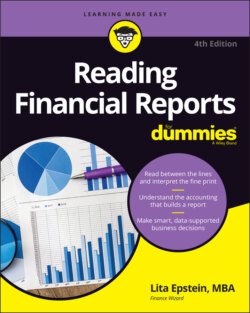Читать книгу Reading Financial Reports For Dummies - Lita Epstein - Страница 52
Understanding Public Companies
ОглавлениеA company that offers shares of stock on the open market is a public company. Public company owners don't make decisions based solely on their preferences — they must always consider the opinions of the business's outside investors.
Before a company goes public, it must meet certain criteria. Generally, investment bankers (who are actually responsible for selling the stock) require that a private company generate at least $10 million to $20 million in annual sales, with profits of about $1 million. (Exceptions to this rule exist, however, and some smaller companies do go public.)
Before going public, company owners must ask themselves the following questions:
Can my firm maintain a high growth rate to attract investors?
Does enough public awareness of my company and its products or services exist to make a successful public offering?
Is my business operating in a hot industry that will help attract investors?
Can my company perform as well as, and preferably better than, its competition?
Can my firm afford the ongoing cost of financial auditing requirements (which can be as high as $2 million a year for a small company)?
If company owners are confident in their answers to these questions, they may want to take their business public. But they need to keep in mind the advantages and disadvantages of going public, which is a long, expensive process that takes months and sometimes even years.
Companies don't take themselves public alone — they hire investment bankers to steer the process to completion. Investment bankers usually get multimillion-dollar fees or commissions for taking a company public. I talk more about the process in the upcoming section “Entering a Whole New World: How a Company Goes from Private to Public.”
